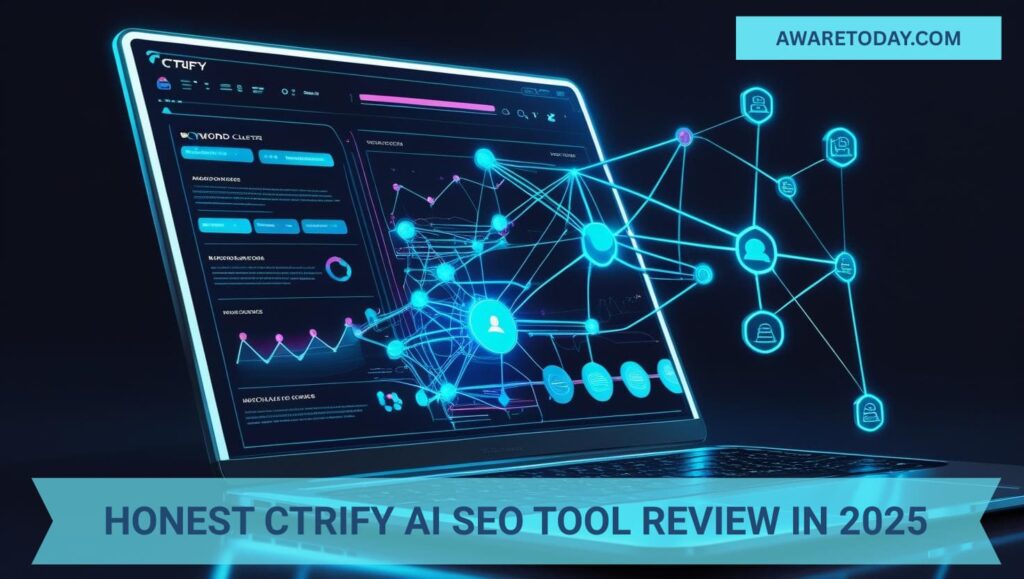Core SEO Elements When Using AI Tools
Content floods everywhere on the internet, and we are all competing to get noticed online. Blogs, and services can sometimes seem lost in so much online competition. There are so many people competing for the same space.
However, being found and noticed online never happens by luck. It takes a strategic formula, Search Engine Optimization. SEO helps search engines define what is relevant for people looking for something and where they can find it.
Artificial intelligence-based tools makes it easier to help write conten and deliver in a matter of seconds. Searchers are at the forefront, wondering what aspects of SEO matter most when utilizing AI. I think this is an interesting question.
This article will highlight what core elements of SEO matter most when utilizing AI. At Aware Today, we believe technology can boost human creativity, not replace it. AI can add value to SEO, but that does not guarantee good search placement. You have to harness the intelligence and power of AI with good SEO to get real results.
Let’s help navigate how that looks.
1). Start with the Right Keywords
Keywords are the building blocks of SEO. They are what allow search engines to figure out what your content is about. When using an AI tool to produce your content. Tell the tool which keywords or phrases to use. While AI can suggest topics or generate content, you have to point out your preferred words or phrases. This implies you will have to do keyword research first.
There are lots of tools to help you do that. Once you discover your best keywords, you can use them naturally in headings, sub-headings. As well as the main content without keyword stuffing. Then AI will simply reuse and paraphrase the keywords. Check to make sure the AI is using the words in ways that are appropriate to the reader.
2. Focus on High-Quality Content
Search engines value original and useful content. In most cases, no matter how quickly AI can write. You should not submit every word created by AI or other tools. As the content expert, your job is to be sure it is useful and meaningful for your target audience.
Even with AI tools, you will still need to take the content generated by AI and edit that content. You will edit for grammar, tone, and also add your examples or insights, as appropriate. Aim for content that answers the reader’s questions. Google and other search engines are experts in recognizing low-quality and duplicate content. Search engines in general want to provide users with the best possible results. So the better content you produce, the better you rank.
3. Optimize Your Meta Tags
Understanding how meta tags work. Meta tags (and meta descriptions in particular) are small snippets of data. This indicates to search engines, and sometimes even displays in previews, what the page is about. They can be generated by AI if you want. Then have them validated by a human for accuracy and completeness.. Meta tag includes meta title and meta description.
Your meta title should include the main keyword and describe what the webpage covers. It should be short and sweet. Your meta descriptions should provide a brief overview of the page content. It should find relevance to the audience for a click. A strong meta title can bolster ranking and increase click-through rates (CTR).
4. Use Headings to Structure Your Content
AI tools have the power to produce a lot of text, but organization still matters when it comes to SEO.
Headings like H1, H2, and H3 help to separate your content into readable sections. Making your content easier to understand for the user. Headings also help search engines understand what your page is all about. Each page should have one clear H1 heading. This will usually serve as your title. H2 and H3 are your headings to broaden topics and give greater detail. Headings increase both readability and SEO effectiveness. When you are writing the content using AI tools. It is helpful to include clear headings. Make sure they are topical and engineered in the proper order.
5. Don’t Forget Internal and External Links
Links are another fundamental area of SEO. Internal links link your content to other pages on your website. External links provide links to trustworthy sources. Both types of links help build your site’s authority and search engine trust. Depending on your AI tool, you may have to add the links to the content manually when you write it. Make sure all of the links you included are useful. Avoid broken links and spammy links that will affect your site negatively. This could cause harm to your overall SEO performance. If not avoided.
6. Make It Mobile-Friendly
The web is being browsed on phones by most people nowadays. This means your content should display correctly and load quickly on their devices. AI tools may not control your site’s layout or design. It is important that users can easily digest the content that the AI generates from any screen. Use shorter paragraphs and more common words in your formatting. Avoid creating long or complicated sentences. A good experience on a mobile screen is a ranking factor for search engines now; it makes a big difference.
7. Use AI Responsibly and Ethically
As AI grows in use, there is a necessary growth in responsible use. Search engines like Google are changing their policies to make sure content is not misleading and not fake. Your low-quality, copied, or misleading AI-generated content could be penalized. You must always share when you have used AI to produce or finalize any piece. That indicates how your user will experience it. Edit it for factual accuracy. Your content must follow the rules of honesty and transparency. If you do not clear up some ambiguity, then good readers and search engines may lose trust.
8. Improve User Experience (UX)
SEO isn’t just about keywords or code. It’s about the people, too. A great user experience allows users to stay on your page longer. It enables engage with your content more frequently. This sends a positive signal to search engines.
When you use AI, always consider the user. Is the content good? Does it address important questions? Have you used AI to deliver content faster? Always keep your target audience in mind.
9. Update and Refresh Your Content
One of the most effective ways to improve your SEO is by continuing to provide updated content. Search engines reference current content over old. You can use AI to quickly update old posts with new facts or trends. AI can be used to evaluate posts and look for gaps to improve or add an update. It may not pay off quickly. Keeping your blog active may not pay off at the start. The longer you remain consistent in posting, your ranking improves over time.
10. Test and Measure Performance
SEO isn’t a one-off activity. You will need to track how the content performs. Using analytics, you can tell which pages are getting traffic and which pages are not, then use AI to suggest changes or new ideas. You can experiment with headlines, descriptions, or even formats. AI is a tool with good benefits from testing, learning, and improving over time.
A Look at the Future of AI and SEO
AI is transforming SEO at a very fast pace. Currently, we have tools that allows us to research keywords, assist with content creation. The next generation of AI tools will help us not just research and analyze. It will identify user experience and speak to what users expect at that moment in time. Allowing content to be created dynamically for that experience. Instead of just looking to direct traffic, it will allow for deep engagement around what users want.
With innovation comes responsibility. SEO professionals must stay on top of trends, algorithm changes, and understand user needs. AI is a great tool to have at your disposal; however, the value is in how you use it.
Why Aware Today Supports Smart and Ethical AI Use
At Awareness Today, we believe technology should be at the service of human creativity and not replace it. Using machines instead of humans is not the right way to use AI. AI can be a great help to writers, but authentic SEO comes from authentic and meaningful communication.
We believe the most ethical and responsible way is to use AI as an adjunct to content and marketing. AI should never replace writers.
Conclusion: Strategy First, Tools Second
There is a lot of value in AI, but it cannot define your vision. It can augment it for you. Solid SEO should be based on a smart strategy: defined keywords, great unique content, and a great user experience. When you have those strict parameters in place, AI can help you improve from good to great.
We at awaretoday.com are not only tracking the future of SEO, we are creating the future of SEO. If you need help defining the headline or adding a call to action, we can help.









